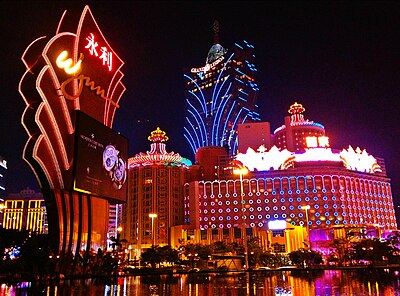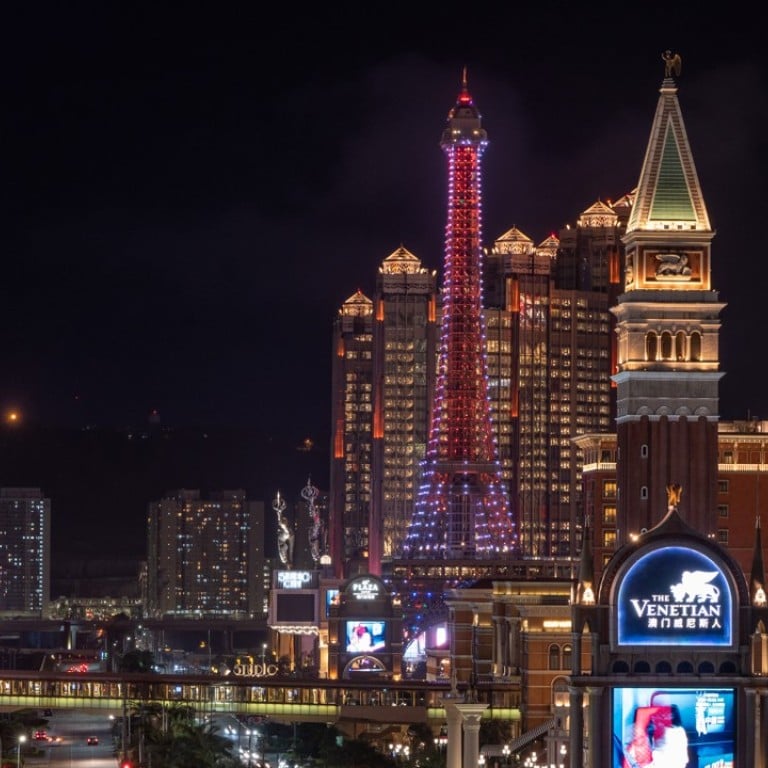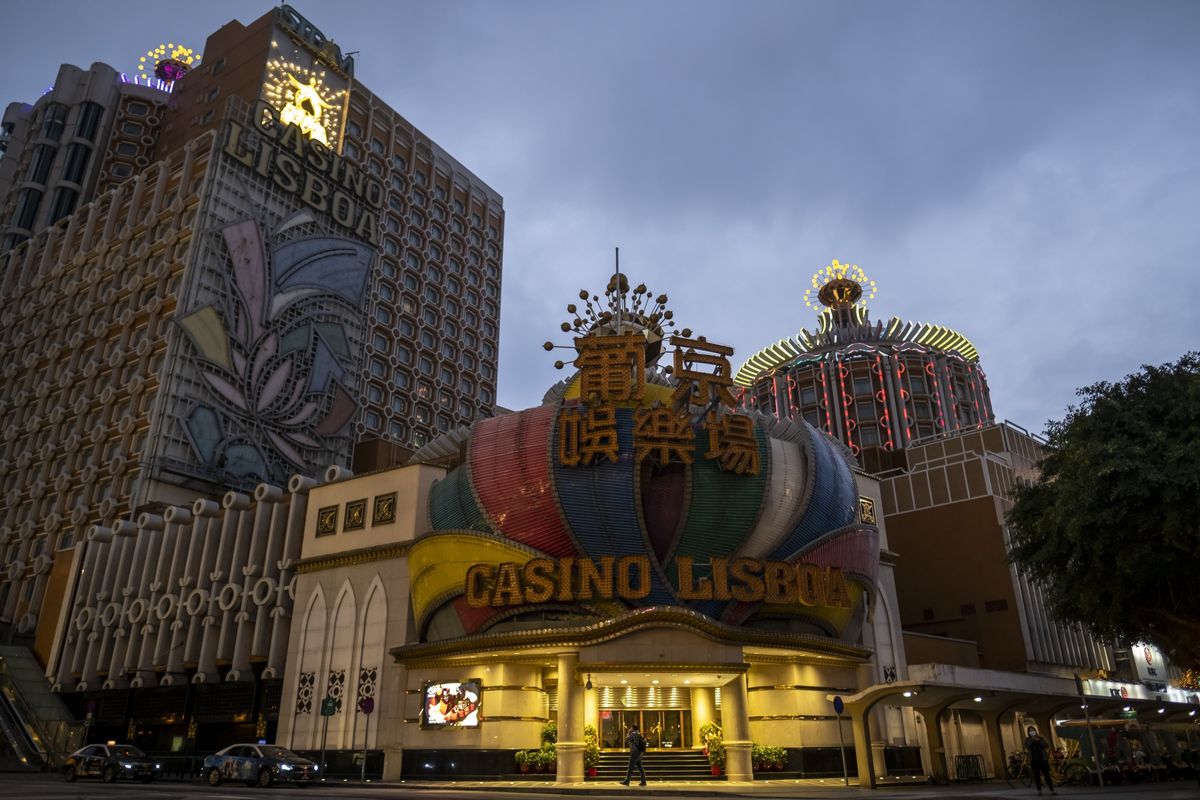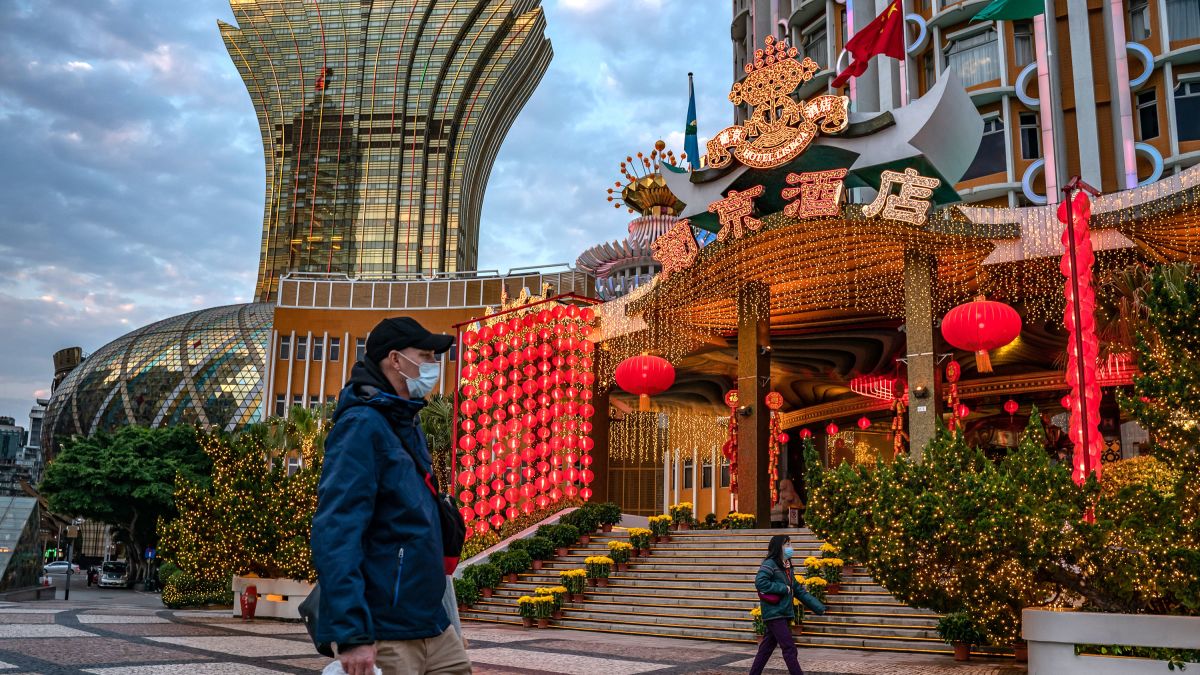Macau Gambling

- Macau Gambling Industry
- Macau Gambling Age
- Macau Gaming Revenue
- Macau Gambling News
- Macau Gaming Revenue Forecast
Macau is China’s answer to Las Vegas. But the former Portuguese colony has long surpassed the City of Lights as the world’s casino capital, with revenue from gambling receipts exceeding the entire state of Nevada back in 2010. As well as drawing in the punters, it has the glittering architecture to match.
The story of Macau is one of globalisation and the rise of China. It is a globalisation story because of the role played by foreign multinational casino companies. And it is a story of the rise of China because it has been the economic prosperity of its citizens that has allowed them in great numbers to travel, see the world, and gamble.
Macau returned to Chinese rule in 1999 as a special administrative region, which means it has different laws to the mainland. It is the only part of Greater China (which includes China, Hong Kong and Macau) where gambling is legal, making it the country’s sole gambling destination.
In the years before the 1999 handover, the environment in Macau was fraught, with organised crime a violent presence competing for access to the sub-contracted VIP gaming rooms. These VIP rooms, which host high stake games in a private setting, are another dynamic behind Macau’s success. They made the Macau gambling experience different from that of other casino destinations.
Macau’s focus on high-spending customers, with private rooms and special privileges – rather than mass market gamblers – is the source of much of the casinos’ revenue. Casinos were originally built around VIP rooms. These were sub-contracted to gambling promoters who shared in the profits from bringing in wealthy gamblers. These high rollers made up 66% of total casino revenues in 2013.
Macau (also known as Macao) has long been Asia’s gaming capital. In the past the casinos were all owned by billionaire Stanley Ho but in 2002 a new era of Macau began. Macau’s 41 casinos generated MOP3.1 billion (approx. $386.7 million) in January of 2020. The February figure was worse than analyst expectations of an 80% drop. The city’s gambling venues generated MOP25.37 billion in February 2019. The annual drop recorded last month was the steepest since casino gaming was introduced in the Special.
International investment
Casino operations generate substantial tax revenue for the government: in 2001 it was 40% of all tax revenue collected. Ten years later, government income from casino gaming taxes amounted to 81% of all tax revenue collected. This massive change is the result of the decision to open up the casino industry and invite foreign firms to compete for a casino license.
Until 2001, only one company was licensed to operate casinos and for four decades this was monopolised by a company called Sociedade de Turismo e Diversões de Macau, SA (STDM). From 2002, casino licences were awarded to several foreign multinational firms and joint ventures. This included big firms from Australia, Hong Kong and the US, with recognisable names from Vegas, such as Las Vegas Sands, MGM, Galaxy and Wynn Resorts.
They invested heavily in big new casino resort complexes, with luxury hotels and high-end shopping malls. Given Macau’s tiny size – it originally consisted of a mainland peninsula and two small islands measuring 11.6 square kilometres in 1912 – land reclamation projects were necessary to host the burgeoning industry. By 2010, the territory measured 29.7 square kilometres, including six square kilometres of new land connecting the small islands of Coloane to Taipa, which plays host to the big casino complexes.

These new casinos have provided some employment opportunities for local citizens, but the greater impact for the economy has been the tourist visitor numbers and the tax revenue generated. After a decade of ever-increasing growth in gaming revenue with the opening of new casinos, tax revenue from the sector peaked in 2014 and then declined after China’s president, Xi Jinping instituted a widespread anti-corruption campaign.
The VIP gaming rooms in Macau became seen by the government in Beijing as a massive leakage of capital from the Chinese economy. A large part of the big money being gambled by these VIPs was seen as the proceeds of corruption and bribery on the mainland.
In 2014, gaming tax revenue provided 84% of the Macau government’s total revenue; by 2017 it had declined to 79%. But these percentages conceal the decline in the actual amount available to the government, from US$20.1 billion in 2014 to US$15.7 billion in 2017. This is because a number of Chinese elites eschewed Macau’s casinos to avoid scrutiny during Xi’s corruption crackdown.
Casino revenue now appears to have stabilised, helped by a move in Macau away from relying on the VIP sector and towards mass market entertainment. The government has also encouraged diversification beyond the casino gaming room and, like Las Vegas, it is looking to attract exhibitions and events to be held there.
The new bridge connecting Macau with Hong Kong should support increasing tourist visits by easing travel to the territory, further supporting diversification. But Macau must increasingly contend with neighbouring rivals. The anti-corruption campaign encouraged Chinese gamblers to visit other Asian casino destinations, including new resorts in Singapore and Manila in the Philippines.
Modern Macau is built on China’s rise and the increased wealth of its citizens that this has brought. Macau’s continued success is contingent on its ability to attract the mass market gambler, along with other tourists, as a vacation destination. As China’s middle class continues to grow, it should guarantee a steady supply for years to come.
The COVID-19 pandemic has hammered gambling revenue in Macau, the “Vegas of China.”
Popular Searches
Through November, Macau gaming revenue is down 80.5% in 2020 to $6.58 billion, according to the latest figures from the Macau government’s gaming bureau.
In the month of November, Macau gaming revenue fell 70.5% to $845.34 million, which was worse than the 65% decline analysts expected, but still looks a lot better than the six straight months of 90% declines that Macau experienced from March through August, as CDC Gaming Reports points out.
In June, Macau gaming revenue dropped 97% year-over-year to $89.7 million, its lowest monthly gaming revenue ever. The numbers have picked up since then, suggesting casinos there have seen the worst of the damage and are on their way back, though a recovery is likely to be very slow.
Macau casinos hit harder than Vegas
Macau, located on the southern coast of China and a one-hour ferry ride from Hong Kong, is the world’s largest legal casino destination by revenue, bigger than Las Vegas. The city is home to 41 casinos as of 2019, and only three U.S. casino companies have properties there: Las Vegas Sands, MGM, and Wynn.
In February, Macau forced casinos to close for two weeks; they reopened with masks and social distancing on Feb. 20. Nevada closed casinos for far longer: 78 days, starting in mid-March and reopening on June 4.
But Macau has been hit worse by the pandemic than Vegas.
© Provided by Yahoo! Finance Employees wearing protective masks stand at the entrance of a gambling hall as they shut a gate at the Grand Lisboa Hotel on February 4, 2020 in Macau, China. Macau government announced casinos would close for two weeks after a hotel worker is infected. (Photo by Anthony Kwan/Getty Images)Nevada statewide gaming revenues were down 36.5% through October (November numbers will not be out until late December), and in the month of October declined 19.5% year over year, the lowest monthly drop since the start of the U.S. pandemic in March. In other words, Vegas casinos are bouncing back faster than Macau casinos.

Macau Gambling Industry
The picture is still far from rosy. Analysts predict that it will take well into 2021 for casinos in the U.S. or China to return to pre-pandemic levels, since the biggest question mark is customer comfort (the same variable threatening movie theaters, theme parks, airlines and hotels).
Betting stocks surging amid mobile sportsbook race
Most interestingly, the pandemic hit to physical casinos has come at a time when U.S. sports betting tech companies have surged, taking advantage of states legalizing sports betting and bettors being stuck at home.
DraftKings, FanDuel, and Penn Gaming have been in arms race in 2020 to launch state-by-state sportsbook operations and sign betting partnerships with pro sports franchises, and their stock prices have surged. DraftKings and FanDuel both said they saw record levels of user signups this fall for their betting apps.
DraftKings stock is up 190% since it became public on Apr. 24 by merging with the already-public Diamond Eagle SPAC, which changed its name and stock ticker to DraftKings (DKNG). DraftKings has announced sports betting partnerships with the New England Patriots, New York Giants, and Philadelphia Eagles in the NFL, the Colorado Rockies and Chicago Cubs in MLB, and the Indiana Pacers and Detroit Pistons in the NBA, along with PGA Tour golfer Bryson DeChambeau.
FanDuel’s Irish parent company Flutter (rebranded in the U.S. from Paddy Power Betfair) is up 44% in 2020 (PDYPY). FanDuel has signed betting partnerships with the NFL’s Denver Broncos and NBA’s Memphis Grizzlies and Detroit Pistons.
Penn Gaming, the Philadelphia-based casino operator, bought a majority stake in media brand Barstool Sports this year for $450 million, then launched a Barstool-branded legal sportsbook app in Pennsylvania in September. Penn stock (PENN) is up 180% in 2020.
© Provided by Yahoo! Finance Graphic by David Foster/Yahoo FinanceIn the U.S., 26 states now have some form of legalized sports betting, but only 12 have legalized mobile sports betting, allowing wagers from a smartphone app. (States must legalize physical and mobile betting separately.)
The U.S. mobile betting market is estimated to top $21 billion for 2020, though it represents less than 30% of the global mobile betting market.

Macau Gambling Age
With a few exceptions, the big U.S. casino names have stayed out of the mobile sportsbook race.
Macau Gaming Revenue
MGM launched its BetMGM app in six states, and signed an exclusive deal with the Tennessee Titans. Golden Nugget and Borgata both launched mobile betting apps in New Jersey. (New Jersey has become a strong No. 2 U.S. betting market to Nevada, and multiple times in the past two years has taken in more monthly gaming revenue than Nevada; over 80% of New Jersey monthly gaming revenue comes from mobile bets.)
Macau Gambling News
Otherwise, amid the rise of DraftKings and FanDuel—which first built their brands through daily fantasy sports (DFS) and now betting—Nevada casinos have mostly stayed on the sideline. They’re betting that the crowds will return once the pandemic is in the rearview mirror.
—
Macau Gaming Revenue Forecast
Daniel Roberts is an editor-at-large at Yahoo Finance and closely covers sports business. Follow him on Twitter at @readDanwrite.